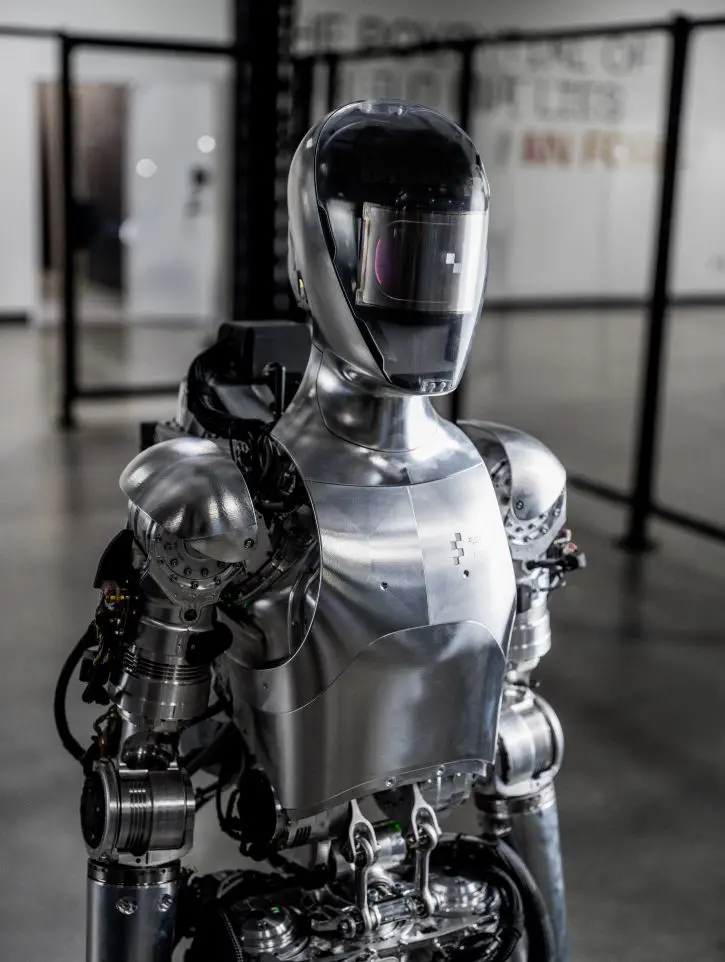BMW is preparing for a new era of innovation in auto production. In collaboration with the Californian company Figure, BMW will use humanoid robots on production lines at the Spartanburg factory in South Carolina (US).
Standing at 167 cm tall and weighing 59 kilograms, these autonomous robots will walk on two legs, use five-fingered hands, and take a break every five hours to move to a charging station where they will connect themselves.
The use of robots on auto assembly lines is not new. They have been present in the auto industry for many years, but this is the first time humanoid robots will be part of the workforce. Most likely, this will have significant implications for the labor market.

Humanoid robots are already being tested in warehouses, and in the future, they are expected to assist in hospitals and nursing homes. According to Brett Adcock, CEO of Figure, we can expect humanoid robots in the real world within the next 24 months, indicating rapid progress in this technological field.
BMW will use humanoid robots on production lines
The collaboration agreement between Figure and BMW outlines a "step-based approach" for implementing humanoid robots in auto production. The initial phase involves identifying use cases for these robots in auto production, followed by gradual implementation at the BMW production facility in Spartanburg, South Carolina (US). The partnership will also explore advanced technologies such as artificial intelligence, robot control, production virtualization, and robot integration.
Brett Adcock emphasizes that Figure's humanoid robots can practically do anything a human worker can, thus filling gaps in automation where certain tasks remain challenging. It's not just BMW that will use humanoid robots on production lines. Implementing humanoid robots in real-world applications is considered a significant step for this technological field, and many companies from various industries are interested in this opportunity.
BMW President and CEO Robert Engelhorn acknowledges the continuously evolving landscape of auto production and states that robots have the potential to make productivity more efficient and allow human teams to focus on future transformations.
Auto manufacturers, including BMW, are exploring increasingly intensive use of robots to counteract rising labor costs. Recent agreements with unions indicate a direction towards more generous salary packages for human workers, making automation an attractive option for maintaining efficiency and competitiveness. Of course, at the expense of human labor.
In conclusion, the integration of humanoid robots into BMW's production processes represents a significant step in reshaping the auto industry. Although it may take some time before humanoid robots completely replace human auto workers, the collaboration between Figure and BMW is evidence of the ongoing evolution of automation.
Related: Artificial intelligence will lead to the extinction of humanity
We should expect more notable developments as technology advances in the field of humanoid robots and generative artificial intelligence.